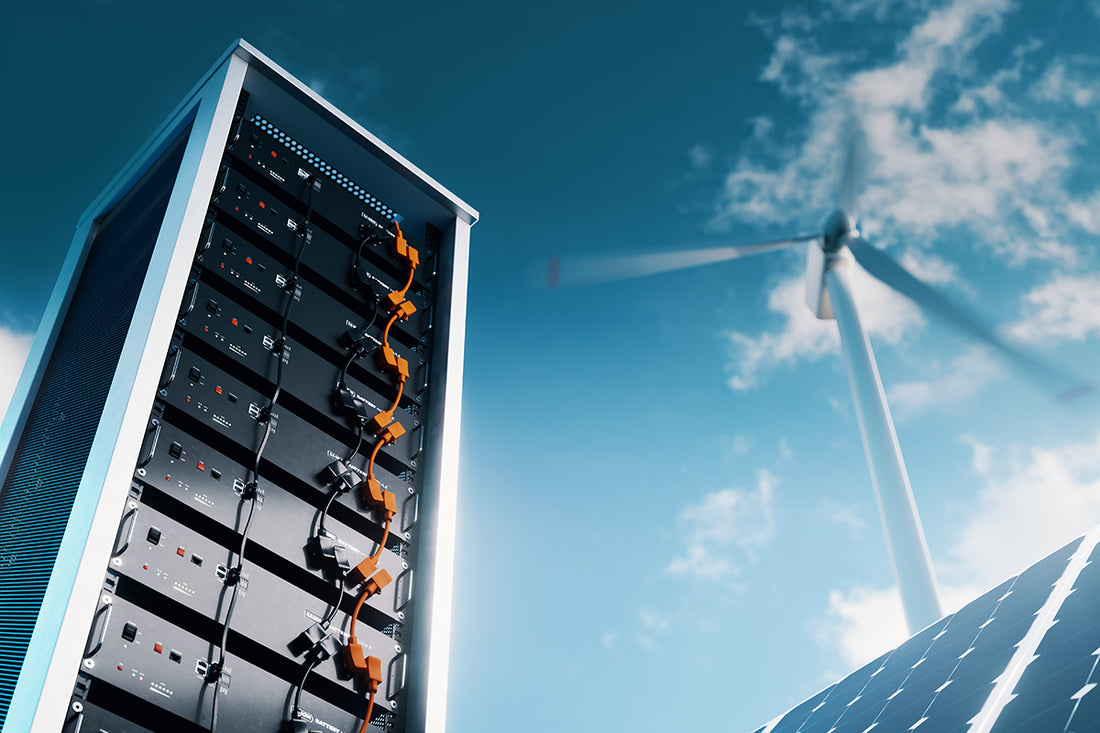
The Benefits of Solar Energy Storage Systems: Saving Money and the Environment
Share
As the world continues to embrace renewable energy, solar power has emerged as a leading solution for reducing reliance on fossil fuels. However, the sun doesn’t shine 24/7, which is where solar energy storage systems come into play. These systems not only maximize the benefits of solar energy but also offer significant financial and environmental advantages. In this blog post, we’ll explore how solar energy storage systems can help you save money and contribute to a greener planet.
Understanding Solar Energy Storage Systems
Solar energy storage systems, often paired with solar panels, store excess energy generated during the day for use during the night or on cloudy days. This stored energy can be used to power your home or business when solar generation is low or energy demand is high. By integrating a storage system with your solar setup, you can achieve greater energy independence and efficiency.
Saving Money with Solar Energy Storage
1. Reduced Energy Bills
One of the most immediate benefits of solar energy storage systems is the reduction in energy bills. By storing excess solar energy during peak sunlight hours, you can use that energy later when electricity rates are higher or when your solar panels aren’t producing energy. This means less reliance on the grid and lower electricity costs.
In some cases, energy storage systems can also enable you to take advantage of time-of-use (TOU) pricing. TOU pricing varies the cost of electricity based on the time of day, with rates typically higher during peak demand periods. By using stored solar energy during these peak times, you can significantly reduce your energy expenses.
2. Avoiding Peak Demand Charges
For businesses, peak demand charges can make up a significant portion of the electricity bill. These charges are based on the highest amount of power consumed in a short period (usually within 15 minutes) during peak hours. Solar energy storage systems can help mitigate these charges by providing additional power during peak demand, reducing the load on the grid and the associated costs.
3. Increased Property Value
Investing in a solar energy storage system can also increase the value of your property. Homes and businesses equipped with renewable energy systems are often seen as more attractive to buyers, especially as energy costs continue to rise and environmental concerns become more prominent. This can make your property more marketable and potentially command a higher sale price.
4. Incentives and Rebates
Many governments and local utilities offer incentives, rebates, and tax credits for installing solar energy storage systems. These financial incentives can significantly reduce the upfront cost of installation, making it more affordable to go green. Additionally, some regions offer net metering programs, which allow you to sell excess solar energy back to the grid, further offsetting your energy costs.
Environmental Benefits of Solar Energy Storage
1. Reducing Carbon Footprint
One of the most compelling reasons to invest in a solar energy storage system is its environmental impact. By storing and using solar energy, you reduce your reliance on fossil fuels, which are a major source of greenhouse gas emissions. Every kilowatt-hour of solar energy you use instead of grid electricity helps lower your carbon footprint and contributes to a cleaner environment.
2. Promoting Renewable Energy Adoption
Solar energy storage systems play a crucial role in promoting the adoption of renewable energy. By providing a reliable source of power even when the sun isn’t shining, these systems address one of the main challenges of solar energy—its intermittent nature. This makes solar energy a more viable option for a wider range of applications, encouraging more people and businesses to make the switch to renewable energy.
3. Enhancing Grid Stability
Solar energy storage systems also contribute to grid stability. By storing excess energy and releasing it when needed, these systems can help balance supply and demand on the grid, reducing the need for additional fossil fuel-based power plants. This not only decreases greenhouse gas emissions but also helps prevent blackouts and other disruptions.
4. Minimizing Environmental Impact
Compared to traditional power generation methods, solar energy has a much lower environmental impact. Solar panels don’t emit harmful pollutants, and when paired with energy storage, they reduce the need for backup power from fossil fuels. Over the long term, this can lead to cleaner air and water, as well as a reduction in the environmental degradation associated with mining and drilling for fossil fuels.
Conclusion
Solar energy storage systems offer a range of benefits that go beyond just saving money. By reducing energy costs, increasing property value, and taking advantage of incentives, these systems provide significant financial advantages. At the same time, they play a vital role in reducing carbon emissions, promoting renewable energy, and enhancing grid stability, all of which contribute to a more sustainable and environmentally friendly future.
Investing in a solar energy storage system is not just a smart financial decision—it’s also a step towards protecting our planet for future generations. At MasonPower, we’re committed to helping you harness the full potential of solar energy with our advanced storage solutions. Contact us today to learn more about how we can help you save money and the environment.
